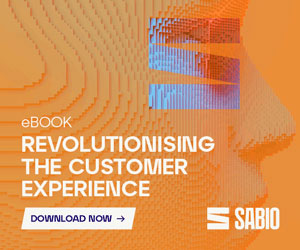In recent years, outsourcing has undergone a digital transformation, changing the benefits and risks associated with it.
As a result, policies or contracts put in place some time back are most likely outdated and require a complete overhaul to make them relevant to today’s marketplace and business needs.
Outsourcing of the future requires a different relationship between the client and outsourcing service provider and a different approach to customer engagement. So what does this look like?
Business in a Digital World
While traditional customer contact centres were primarily voiced, the digital world in which businesses operate today requires a multichannel approach, including voice, live chat, email, social media and self-service channels.
Outsourcing is not just about shifting from voice to multiple other channels but rather looking for ways to optimise them so the company is able to meet customer expectations.
Primarily, customers want options. They don’t want to be forced into using one particular channel, so customer demographics and preferences need to be carefully considered before choosing channels of engagement.
Understanding the Digital Customer
Thanks to the internet and the vast amount of information available, customers are more informed and connected than ever before.
Whereas previously a customer would contact a company to find out more about their products or services, today a customer will first research online and seek out opinions and recommendations of others. When they do make contact, it is usually to find an answer to a specific query or to check on deals available.
Another aspect of the digital customer that has a large impact on outsourcing is that shopping and service enquiries are no longer confined to business hours. Customers expect service 24/7 and don’t want to wait for 9am the next day to get a response.
The onus is on companies to prove to customers that they are worth spending money with. A bad experience can earn them a serious backlash splashed all over social media, so it’s more important than ever to have an outsourcing partner that understands the business’s needs and customer expectations.
AI Enhancement
Using Artificial Intelligence (AI) to enhance business processes helps to manage high volumes of customer engagements more effectively.
Not only can queries be processed more efficiently, it also helps build a database of useful customer information. AI can be used to support both agent contact centres as well as self-service channels.
The downside of AI is that it requires a sizeable investment. However, this is also one of the reasons it should be considered within the context of outsourcing.
A good outsourcing service provider that has AI systems in place will be able to offer a far more effective value-driven service, cheaper than a client trying to implement it for themselves.
Future Outsourcing
A good outsourcing service provider will be able to better manage the risk of digital transformation and help to reduce the investment required by the client.
In terms of business outcomes, there is a promise of guaranteed efficiencies that are benchmarked and tied to related cost savings.
The structure of outsourcing contracts can incorporate metrics such as AHT and FCR with the aim of achieving a cost-reduction curve. The onus is then on the outsourcer to meet the targets set.
This new model of outsourcing is not without its weaknesses. It’s more complex and will require closer collaboration between client and outsourcer, making sure they understand the brand enough to represent it well in customer engagements.
Clients will need to retain a level of expertise and have a clear understanding of the capabilities of the outsourcer so that business needs can be met.
Most importantly, there needs to be a degree of flexibility in the working arrangement to accommodate changing business needs and new technologies.
Agility is a key attribute in the marketplace, and having inflexible structures or outsourcing agreements will hinder progress and the company’s ability to remain competitive in a constantly changing marketplace.
While outsourcing is not a solution for every business, when considered within the context of digital transformation, there are benefits.
A good outsourcing service provider should be able to offer a company the tools and ability to implement a more advanced and targeted customer engagement strategy with less risk and lower investment.
The value of being able to implement a more strategic customer engagement strategy should not be underestimated. After all, it’s the customer experience that is defining brands and their position in the marketplace.
Author: Guest Author
Published On: 21st Aug 2018
Read more about - Guest Blogs, Ember



































